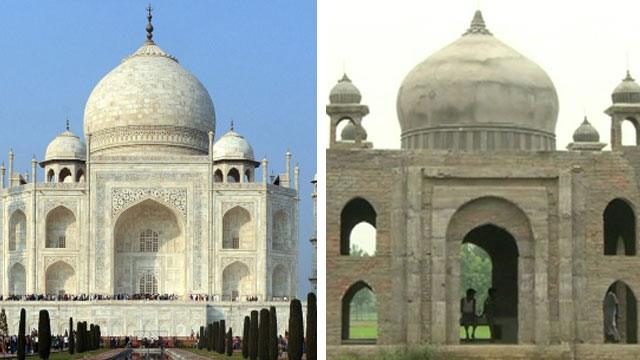Taj Mahal: India monument 'not a Hindu temple'
- Published
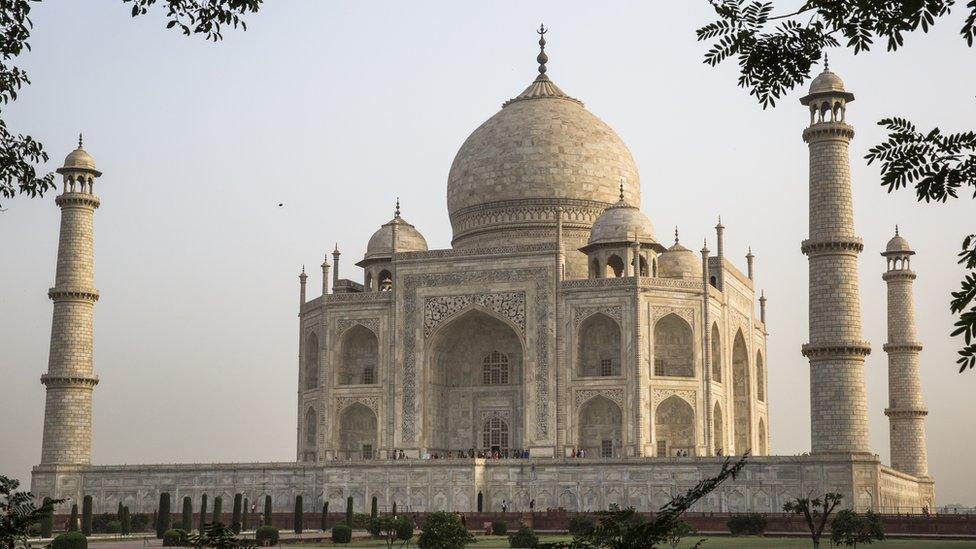
The Taj Mahal is a Unesco World Heritage site
India's government has rejected claims by a group of lawyers that the Taj Mahal monument was a Hindu temple.
Culture Minister Mahesh Sharma said the government had not found any evidence to support the claim.
The lawyers filed a petition in a court last year saying that the monument should be handed over to Hindus.
The Taj Mahal, a 17th Century mausoleum built by Mughal emperor Shah Jahan, a Muslim, after his wife's death, attracts about 12,000 visitors a day.
Six lawyers belonging to the city of Agra, where the monument is located, had told a court there was "substantial evidence", external to prove that the famous monument was originally a temple dedicated to the Hindu god Shiva.
They had urged the court to declare the monument a Hindu temple.
The Taj Mahal was completed by Shah Jahan in 1653 as a mausoleum for his third and favourite wife, Mumtaz Mahal, who died giving birth to their 14th child.
The monument's complex structure of white marble domes and minarets inlaid with semi-precious stones and carvings is considered the finest example of Mughal art in India.
In 1983, the Taj Mahal became a Unesco World Heritage site and attracts millions of visitors each year.
- Published25 June 2014
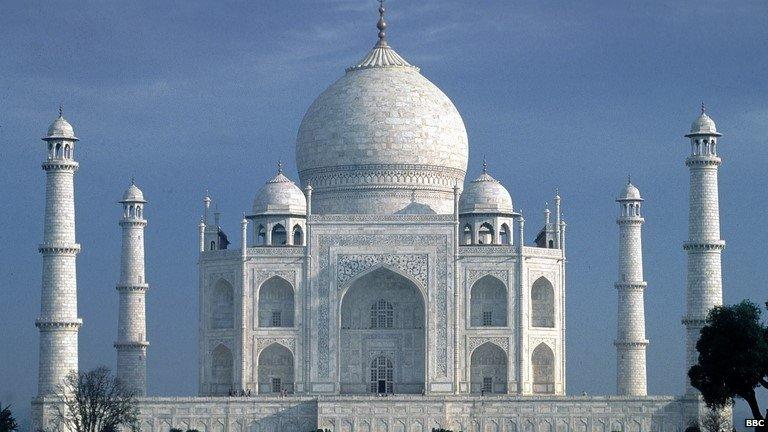
- Published22 August 2015
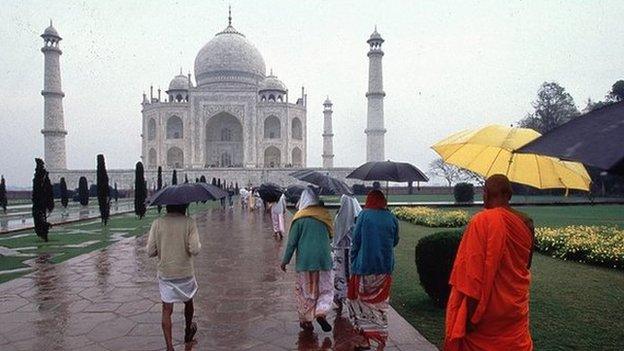
- Published17 November 2015
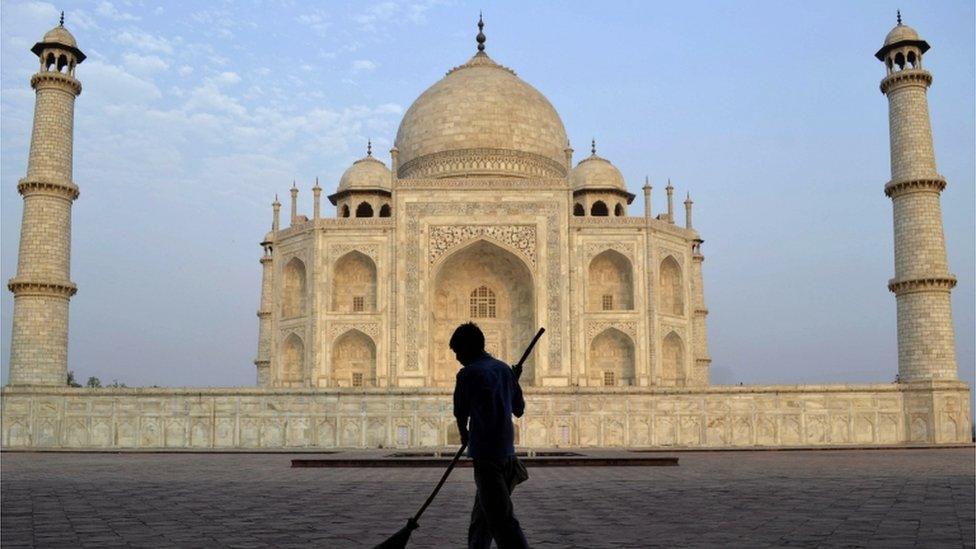
- Published18 September 2015

- Published13 September 2013
